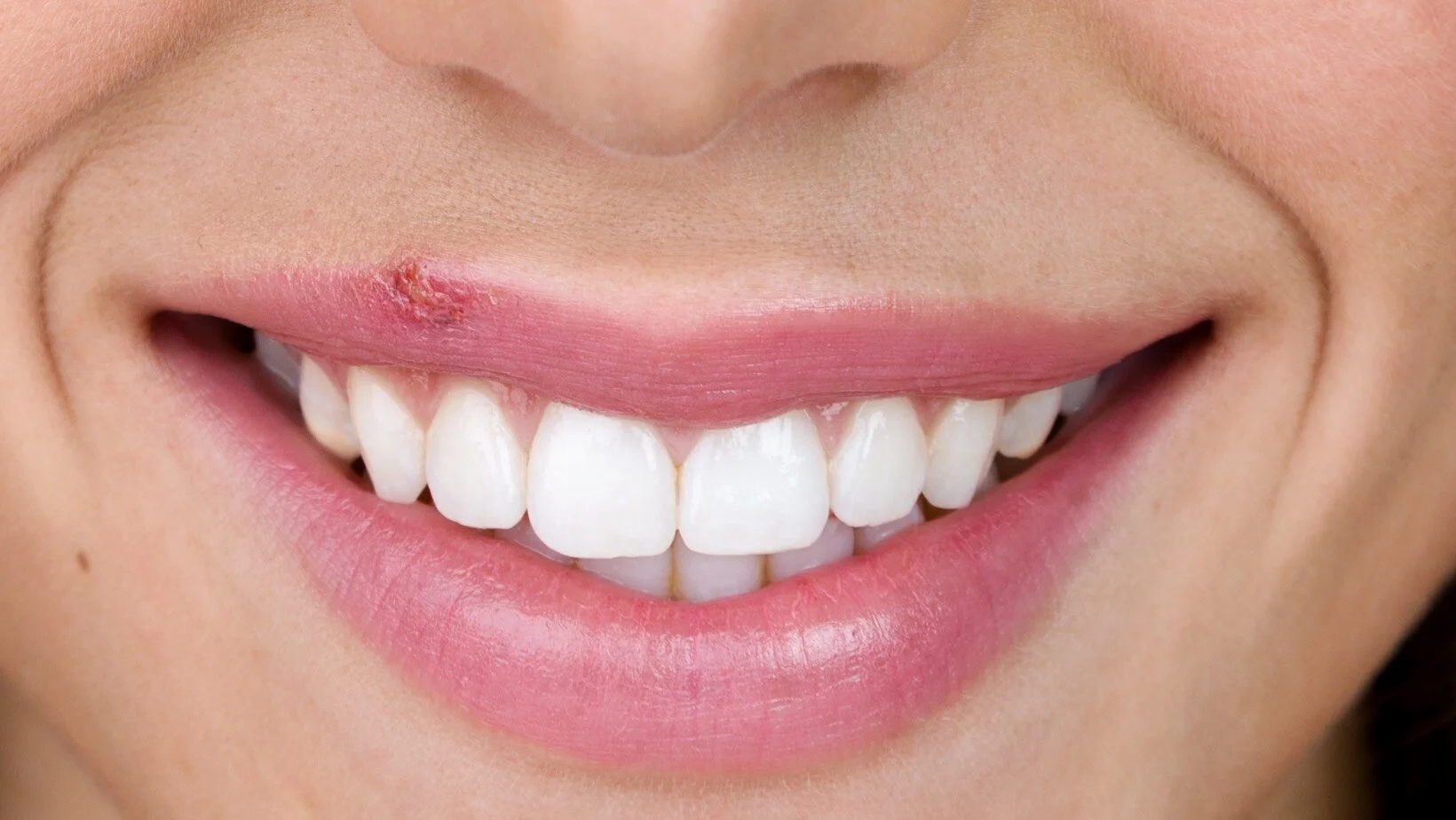Cold Sores (HSV-1) and Dental Treatment.
Treating a patient with HSV-1 can have devastating consequences for not only the patient but their families, as well as our staff and other patients.
As part of S3 Dental's Infection Control Policy we ask our patients to reschedule any non-urgent dental treatment if they have had a HSV-1 outbreak within the last 2 weeks.
What Are The Symptoms Of HSV-1?
Symptoms of HSV-1 will vary depending on a person’s age. They will range from unpleasant to very serious. The infection is usually associated with a fever, headaches, a feeling of overall weakness as well as Gingivostomatitis which causes swelling of the mouth and gums and lesions to appear in the oral cavity. Gingivostomatitis is particularly severe in children, causing them to feel lethargic, lose their appetite and present a dangerously high temperature.
Symptoms usually subside within a few weeks, however the virus never dies, it can be reactivated regularly by illness, stress and even sunlight. The reactivated virus usually starts with an itching, tingling or burning feeling, over the next 48 hours a fluid filled blister will appear, they are usually located around the mouth, however they can appear anywhere on the face. These blisters usually burst and scab over within 48 hours however they will still be contagious until they have fully healed, usually about 14 days later.
Is HSV-1 Really That Dangerous?
For infants under 3 months, HSV-1 can be extremely serious due their immune systems not being fully developed.
The high fevers experienced during an outbreak can be very dangerous.
The virus can infect the eye causing blindness.
The most dangerous complication of Herpes is Herpes Simplex Encephalitis (HSE). HSE is a rare neurological disorder which causes inflammation of the brain.
Why Will A Dentist Not Treat A Patient With HSV-1?
Treating an infected patient can spread the virus, resulting in additional lesions.
The aerosols emitted during the dental treatment can survive on clothing, skin, plastic and other surfaces for hours which means not only the Dentist who performed the treatment but colleagues and other patients could be put at risk.
HSV-1 can be absorbed through the skin meaning even with appropriate PPE the Dentist can still be at risk of contracting the virus. If a dental professional did develop HSV-1 they would be unable to work until they were no longer contagious.
If you are due to have non urgent dental treatment or a visit to our hygienist and develop a cold sore, we would always recommend you ring ahead to rearrange your appointment, as unfortunately we will be unable to treat you.

